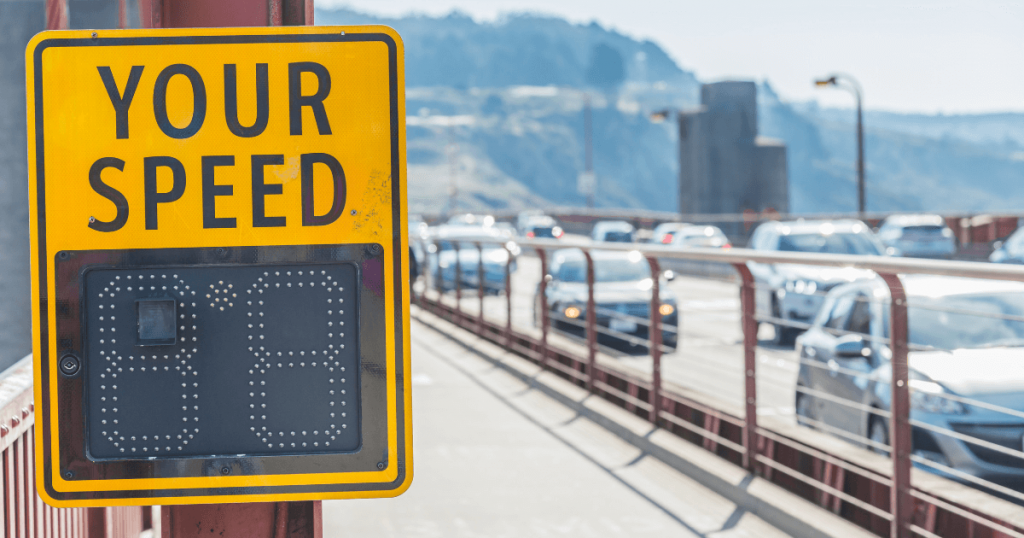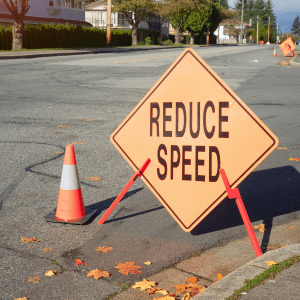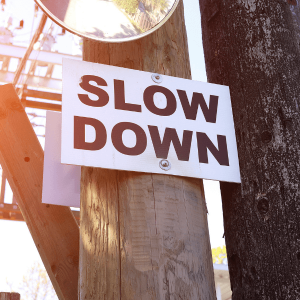Chicago Failure to Reduce Speed Attorneys
Everyone knows that operating a motor vehicle at a rate of speed that exceeds the posted speed limit is a violation of the state’s traffic laws. Did you know, however, that under a variety of conditions you are also required to reduce your speed even if you are not exceeding the speed limit? A violation of this law is commonly known as “failure to reduce speed” and is frequently issued to at least one of the parties following a collision.
If you have been ticketed for failure to reduce speed, it is imperative that you understand all the potential consequences of a conviction. The Chicago failure to reduce speed lawyers of Mitchell S. Sexner & Associates LLC can help you defend your rights. Contact us at (312) 644-0444 for a free legal consultation.

What Is the Illinois Failure to Reduce Speed Law?
The failure to reduce speed law is governed by Illinois Compiled Statutes 625 IILCS 5/11-601(a) which reads in pertinent part as follows:
"No vehicle may be driven upon any highway of this State at a speed which is greater than is reasonable and proper with regard to traffic conditions and the use of the highway or endangers the safety of any person or property. The fact that the speed of a vehicle does not exceed the applicable maximum speed limit does not relieve the driver from the duty to decrease speed when approaching and crossing an intersection, approaching and going around a curve, when approaching a hillcrest, when traveling upon any narrow or winding roadway, or when special hazard exists with respect to pedestrians or other traffic or by reason of weather or highway conditions. Speed must be decreased as may be necessary to avoid colliding with any person or vehicle on or entering the highway in compliance with legal requirements and the duty of all persons to use due care."

What Are the Potential Penalties for Violating the Failure to Reduce Speed Law?
Also known as “failure to reduce speed to avoid an accident,” the failure to reduce speed law is a petty offense with a potential fine of up to $1,000 if convicted. However, it is often the related consequences of a conviction that are the most problematic. Like all moving violations, a conviction will result in a mark on your Illinois Driving Abstract which if noticed by your insurance company will likely raise your car insurance rates for the foreseeable future.
Can I Avoid a Conviction for Failure to Reduce Speed?
Every ticket is issued under a unique set of circumstances; however, for the State to prove failure to reduce speed to avoid an accident they must show more than just that you failed to slow down. The state must show that you violated your duty to use “due care.” Whether or not a motorist used “due care” is a subjective determination that can be affected by a wide variety of factors and circumstances. For example, were road conditions such that slowing down wasn’t possible? Was it really the other driver that failed to slow down? Did you actually reduce your speed, but the accident occurred anyway? There are typically a number of factors that should be investigated when building a defense to an accusation of failure to reduce speed.
One way of avoiding a conviction for failure to reduce speed is to enter into the Court Supervision program. Under this option, you will be placed under the supervision of the court for a period of time (usually about six months for this type of offense) during which you must remain out of trouble and not receive any additional tickets. You may also be required to pay fines, costs, and fees and may be required to complete community service hours or do traffic safety school. If you successfully complete the Court Supervision program, you will not have a conviction on your permanent record nor will you incur points on your license.
Another possible alternative is to take part in what is referred to as a “stipulated bench trial”. This is something that may allow the driver to avoid an actual trial and also the negative repercussions that may attach from an actual plea of guilty (as detailed below in the next section).

How Can a Failure to Reduce Speed Ticket Affect Me in Civil Court?
If you are convicted of failure to reduce speed to avoid an accident, that conviction can be used against you in a subsequent civil lawsuit. In other words, if another party files a lawsuit against you for injuries sustained in a collision and you are convicted of a failure to reduce speed to avoid an accident, it will likely be used as evidence of your negligence (fault) in the personal injury lawsuit. If you were negligent, it typically means you will be held financially responsible for the injured party’s damages which may include repairs to a vehicle, medical and hospital bills, and time missed from work because of the collision.
Here’s the typical scenario. A person gets into an accident. The Chicago Police Officer (or any other officer in Illinois) arrives at the scene and surveys the damage. Typically, the police will issue a ticket to the driver that hit the other from behind. Sometimes the ticket will be for failure to reduce speed and other times, it may be for a ticket called “following too closely to avoid an accident”. The general thinking by the police is that if you hit someone from behind, then you either were following too closely or you failed to reduce your speed quickly enough to avoid the accident. Although the police should often look more closely into the how the accident happened (as it’s not always the driver to the rear that is at fault), unfortunately the person behind almost always gets the ticket.
Once given such a ticket, it’s at this point that a great many drivers decide that this is just another one of those minor tickets that they don’t need help from an attorney on. They’ll just pay it online or in person, and although they know that it might affect their insurance rates a little, they’re not very worried about it. Although it’s true that this type of ticket is not that serious and that it’s not even possible to go to jail for it, more consideration is necessary before the final decision is made to pay the ticket and plead guilty.
An experienced attorney will first look into whether you were insured at the time and if so, whether your insurance company is considered to be a “good” company or what is often referred to in the industry as a “sub-standard” insurer. Secondly, the attorney needs a general idea of how much property damage occurred and how much personal injury (if any) resulted from the accident. Especially if a death or great bodily injury occurred, this is very important. Lastly, if you were insured, your policy limits are significant here as well.
Why are these things important you may ask?
- If you were not insured, your license may get suspended by the Illinois Secretary of State once they hear that you were at fault in an accident (this is referred to as a 04 suspension)
- If you plead guilty to a failure to reduce ticket (whether in court or by mail), you are admitting that the accident was your fault / words that you can never take back
- If you are later sued in civil court for money damages arising from the accident, you will therefore NOT be able to escape blame (liability) for the accident, as the opposing lawyer will use your words in traffic court against you to prove fault
- If you were uninsured, any money judgement against you in civil court will come directly from your pocket and may be more money than you have the ability to pay
- If you are unable to pay the civil judgement, the Illinois Secretary of State will suspend your license for this reason as well (this is referred to as an 06 suspension)
- If you were insured, but your insurer was substandard or if your policy limits were below that of the total damages, you may be left holding the bag, again resulting in a suspension
So, sometimes a minor traffic ticket is nothing to be overly concerned about. But other times, even though the offense may be small, the effects may be great. Depending on the damages from the accident and your insurance situation, a moving violation like “failure to reduce speed to avoid an accident” can, if handled improperly, result in loss of insurance or even a loss of driving privileges.
Contact a Chicago Traffic Law Attorney Today
If you were recently ticketed for failure to reduce speed in Chicago following an accident, it is in your best interest to consult with an experienced traffic law attorney right away to ensure that your rights are protected. We can examine your driving record and the specific facts of your case to determine whether a plea is advisable or whether a trial would be a better alternative. Contact our experienced Chicago traffic attorneys at Mitchell S. Sexner & Associates LLC today by calling (312) 644-0444 or by filling out our online contact form. Our phone lines and our online operators are open 24/7 to assist you.
